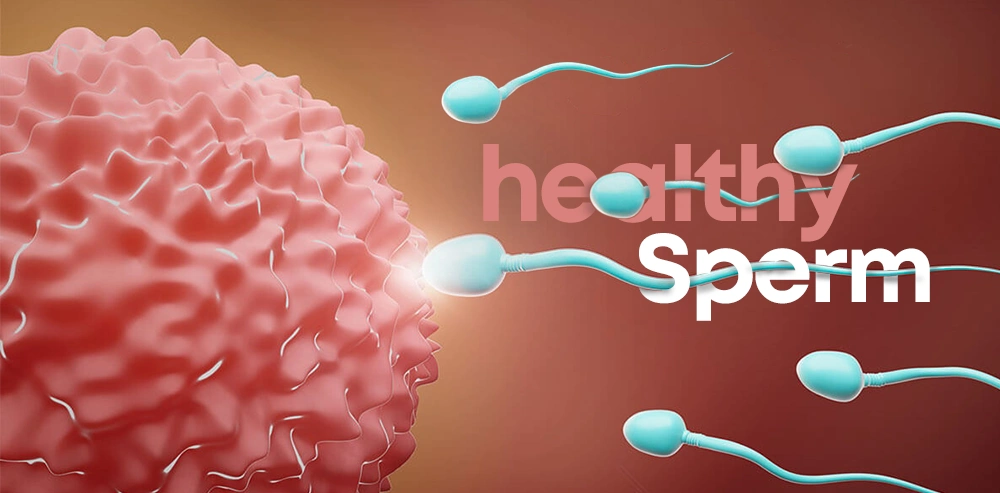How To Improve Sperm Health
1. Introduction
- Overview: Introduce why sperm health is crucial for overall male fertility. Highlight the impact of lifestyle, diet, and habits on sperm quality, count, and motility.
- Importance: Mention the benefits of maintaining healthy sperm, such as improved fertility, better chances of conception, and overall reproductive health.
2. Common Factors Affecting Sperm Health
- Diet and Nutrition: Discuss how a poor diet can lead to nutrient deficiencies that affect sperm health. Mention essential nutrients like zinc, folic acid, and antioxidants.
- Lifestyle Choices: Explain how habits like smoking, excessive alcohol consumption, drug use, and sedentary lifestyle impact sperm quality.
- Medical Conditions: Address how underlying conditions such as obesity, diabetes, and hormonal imbalances can impact sperm health.
- Environmental Factors: Touch on the effects of exposure to toxins, chemicals, radiation, and excessive heat.
3. Diet and Nutrition Tips to Improve Sperm Health
- Healthy Foods: List foods that support sperm health:
- Nuts & Seeds: Rich in omega-3 fatty acids and antioxidants (e.g., walnuts, flaxseeds).
- Fruits & Vegetables: Especially those high in Vitamin C, E, and folate (e.g., oranges, berries, leafy greens).
- Lean Proteins: Like chicken, turkey, and fish for amino acids.
- Whole Grains: Brown rice, quinoa, and oats for overall health.
- Foods to Avoid: High-fat foods, processed snacks, sugary drinks, and excessive caffeine.
4. Healthy Habits for Better Sperm Quality
- Regular Exercise: Explain the importance of moderate physical activity to boost testosterone and improve sperm motility.
- Stress Management: Discuss how chronic stress can negatively affect sperm count. Suggest techniques like meditation, yoga, or deep breathing.
- Sleep Hygiene: Emphasize the importance of good sleep for hormonal balance and sperm production.
- Healthy Weight Maintenance: Mention how obesity affects sperm quality and ways to maintain a healthy weight through diet and exercise.
5. Supplements for Enhancing Sperm Health
- Key Supplements:
- Zinc: Essential for testosterone production.
- Coenzyme Q10 (CoQ10): For improved motility.
- Folic Acid: Supports DNA synthesis.
- Omega-3 Fatty Acids: For improved sperm morphology.
- L-Arginine: Boosts nitric oxide levels for better blood flow.
- Caution: Note that supplements should be taken after consulting a healthcare provider.
6. Lifestyle Changes to Avoid for Sperm Health
- Avoid Smoking and Alcohol: Explain how they damage sperm DNA and reduce count.
- Limit Exposure to Toxins: Suggest using protective gear if working in environments with chemicals or pollutants.
- Stay Cool: Discuss the importance of keeping the testicles cool to maintain sperm health, like avoiding hot baths and tight clothing.
7. Medical Treatments for Severe Cases
- Fertility Medications: Mention medications that can help if lifestyle changes aren’t enough.
- Assisted Reproductive Techniques (ART): Briefly cover options like IUI and IVF.
- When to See a Doctor: Suggest consulting a specialist if sperm health does not improve after 6-12 months of lifestyle changes.
8. Conclusion
- Summarize the importance of maintaining good lifestyle habits for better sperm health.
- Encourage readers to consult a healthcare provider before making significant changes or starting supplements.
- Mention that small changes can lead to significant improvements in overall health and fertility.
9. FAQs (Frequently Asked Questions)
- How long does it take to improve sperm health?
- What are the best foods for sperm health?
- Can stress affect sperm quality?
- What vitamins help with sperm production?
.webp)

.webp)
.webp)

.webp)